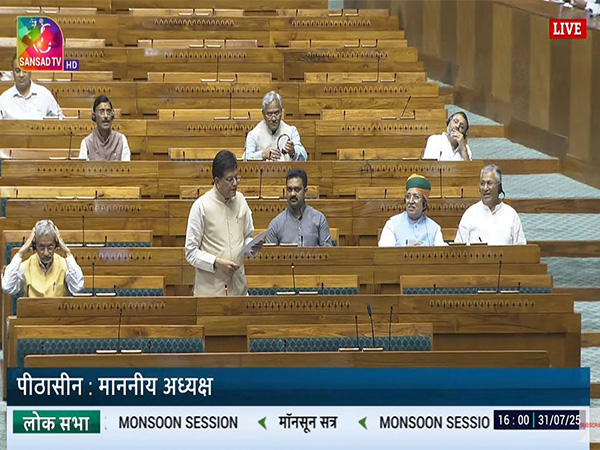
New Delhi: The government told the Parliament on Thursday that US President Donald Trump has announced a reciprocal tariff on Indian goods, and it is examining the impact of the recent events and will take all necessary steps to safeguard national interest.
Commerce and Industry Minister Piyush Goyal made a statement in the lower House of Parliament a day after Trump announced the tariff. He later made similar statement in the Rajya Sabha. Goyal's remarks came a day after the government issued a statement on the US decision to impose tariffs.
On Wednesday, Trump announced the imposition of 25 per cent tariffs on Indian goods and a penalty for importing Russian oil, even as there were hopes of an interim India-US trade that would have otherwise helped avoid elevated tariffs.
Goyal said the Mnistry of Commerce and Industry is holding talks with exporters, industries and all stakeholders and gathering information on their assessment of this issue.
"On April 2, 2025, the US President issued an executive order on reciprocal tariffs...ten per cent baseline duty in effect since April 2025. With a 10% baseline tariff, a total of 26% tariff was announced for India. Full country-specific additional tariff was scheduled to come into effect on April 9 but on April 10 this was extended initially for 90 days and then extended till August 1 2025," Goyal said
"Government gives utmost priority to the safeguarding of welfare of farmers, labourers, entrepreneurs, industrialists, exporters, MSMEs and stakeholders of the industrial sector. We will take all necessary steps to safeguard our national interest. The Government is confident that we will continue our swift journey of inclusive and consistent development towards the goal of Viksit Bharat 2047. Aatmanirbharta ki ore Bharat aatmavishwas se badh raha hai," he added.
The Union Minister said that in less than a decade, India came out of the 'Fragile Five' economies and it has now become the fastest-growing economy in the world.
"On the basis of the hard work of reforms, farmers, MSMEs and industrialists, we have come in the top five economies of the world from the 11th largest economy. It is expected that we will be the third-largest economy in a few years. Today, global institutions and economists see India as a bright spot in the global economy," he said.
Goyal said India and the US started talks for a just, balanced and mutually beneficial Bilateral Trade Agreement (BTA) in March this year, and the goal of this was to finish the first stage of the Agreement by October-November 2025.
On April 2, 2025, President Trump signed an executive order for reciprocal tariffs on various trade partners, imposing varied tariffs in the range of 10-50 per cent. He subsequently kept the tariffs in abeyance for 90 days, while imposing a 10 per cent baseline tariff. The deadline was to end on July 9, and the US administration later pushed it ahead to August 1.
In March 2025, India and the US initiated talks for a BTA, with the countries stating that the first tranche would be signed by the fall of 2025. (October-November).
Talks took place in New Delhi and the US, and there have also been virtual meetings.
In its statement on Wednesday, Commerce and Industry Ministry said that it as taken note of a statement by the US President on bilateral trade and the Government is studying its implications.
"India and the US have been engaged in negotiations on concluding a fair, balanced and mutually beneficial bilateral trade agreement over the last few months. We remain committed to that objective. The Government attaches the utmost importance to protecting and promoting the welfare of our farmers, entrepreneurs, and MSMEs," the statement said.
"The Government will take all steps necessary to secure our national interest, as has been the case with other trade agreements including the latest Comprehensive Economic and Trade Agreement with the UK," it added.
There were some reservations from the Indian side on the US demand for opening up the agricultural and dairy sectors for the US. Agriculture and dairy are critical for India as these two sectors provide livelihood opportunities to a large section of its people.
US President Donald Trump had imposed reciprocal tariffs on dozens of countries with which the US has a trade deficit. Since assuming office for his second term, President Trump has reiterated his stance on tariff reciprocity, emphasising that the United States will match tariffs imposed by other countries, including India, to "ensure fair trade".